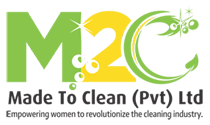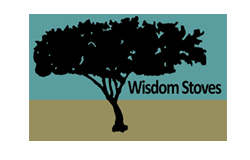
We reviewed over 200 businesses worldwide*, and have identified over 165 businesses operating in the care economy across Latin America, Sub-Saharan Africa and Asia who met the following 4 criteria:
1. Geography focus: operating in project target countries.
2. Care economy impact: business activities recognize, reduce, reward or redistribute care work.
3. Proof of concept: care economy activities at least at the launch stage (none of the businesses are at concept stage).
4. Market-based intervention: already or planning to be financially profitable or to generate income in the medium term.
Out of the mapping we selected 60 businesses to conduct a full profile and showcase potential investment opportunities. These profiles have been created from information and data provided by the business itself. Use the filter on the left to access the businesses profiled.
* Disclaimer: The data presented in the business mapping and profiles is based on information provided by the businesses and has not been independently verified
1. Geography focus: operating in project target countries.
2. Care economy impact: business activities recognize, reduce, reward or redistribute care work.
3. Proof of concept: care economy activities at least at the launch stage (none of the businesses are at concept stage).
4. Market-based intervention: already or planning to be financially profitable or to generate income in the medium term.
Out of the mapping we selected 60 businesses to conduct a full profile and showcase potential investment opportunities. These profiles have been created from information and data provided by the business itself. Use the filter on the left to access the businesses profiled.
* Disclaimer: The data presented in the business mapping and profiles is based on information provided by the businesses and has not been independently verified
Filter Your Results
Koola Waters
Website: koolawaters.co.ke
Headquarters: Kenya
Country of Operations: Kenya
Women owned / led: Founded by at least one woman
About the organization: Koola Water is a for-profit company that focuses on manufacturing, distribution, treatment and packaging of pure drinking water in Kenya. Its products reduce the time spent by women to obtain clean drinking water in rural areas of Kenya.
Stage of Growth: Small scale roll-out/Early stage
Types of Services: Domestic services, Labour saving solutions
Activities in the care economy: Provision of affordable time and labour saving technology and products
Pathway to impact: Reduce
Made To Clean Pvt Ltd
Website: www.madetoclean.co.zw
Headquarters: Zimbabwe
Country of Operations: Zimbabwe
Women owned / led: Founded by at least one woman, At least 51% owned by women, At least 30% women in senior leadership

About the organization: Made To Clean is a for-profit company that aims to standardize domestic work in Zimbabwe, by providing training and placements to domestic workers. Through its operations, it seeks to reward domestic workers for their work by increasing their skills.
Stage of Growth: Small scale roll-out/Early stage
Types of Services: Domestic services
Activities in the care economy: Provision of technology & services that train/upskill domestic & care workers
Pathway to impact: Reward
Strong Start
Website: www.strongstart.co.ke
Headquarters: Kenya
Country of Operations: Kenya
Women owned / led: Founded by at least one woman, At least 51% owned by women, At least 30% women in senior leadership positions, At least 30% of women in board of directors

About the organization: Strong Start is a for-profit company that provides caregivers and domestic staff in Kenya with technical skills training in early childhood development, household management, self advocacy and job search training. It connects with caregivers and domestic staff through community micropods and blended trainings to support them in advancing their technical and advocacy skills at their workplaces. The enterprise has trained 144 caregivers via live blended trainings and worked with 634 caregivers in micropod & playgroup programs. The company’s services not only reduce the burden of care work but also upskill caregivers and domestic workers.
Stage of Growth: Small scale roll-out/Early stage
Types of Services: Infant-care (children younger than 1-year), Child-care (Ages 1 to 5), Domestic services
Activities in the care economy: Provision of technology & services that train/upskill domestic & care workers
Pathway to impact: Recognize, Reward
Wisdom Stoves
Website: www.wisdomstoves.org
Headquarters: Kenya
Country of Operations: Kenya
Women owned / led: At least 30% of women in board of directors

About the organization: Wisdom Stoves is a nonprofit that designs, manufactures and distributes fuel-efficient cook stoves called the Malaika Jiko, empowering women and conserving natural resources. It hugely reduces care work by saving time and allows families to save money on fuel (biomass vs. charcoal, kerosene or propane) and energy spent by women in cooking. In addition lowering the health risks for women and children in Kenya who cook over an open fire. The non-profit greatly reduces destruction of wood growth compared with current methods of charcoal production.
Stage of Growth: Small scale roll-out/Early stage
Types of Services: Domestic services
Activities in the care economy: Provision of affordable time and labour saving technology and products
Pathway to impact: Reduce
